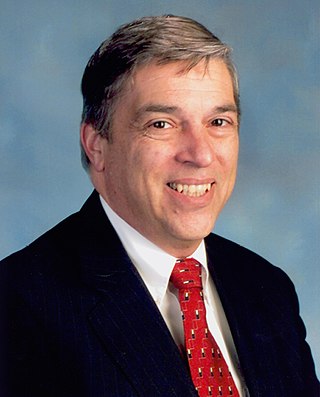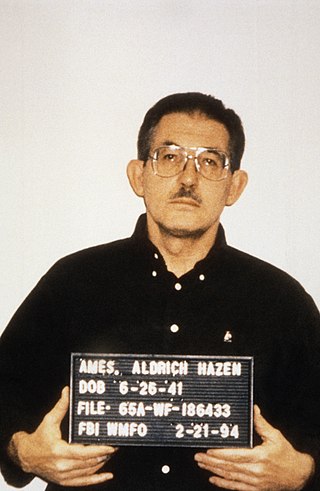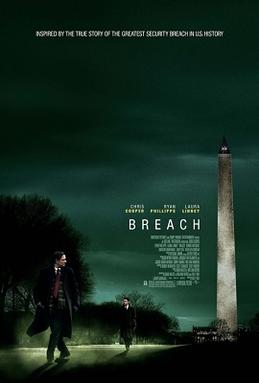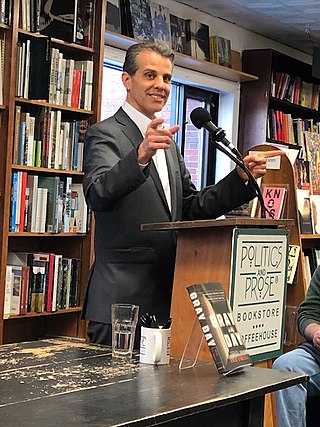Espionage, spying, or intelligence gathering is the act of obtaining secret or confidential information (intelligence). A person who commits espionage is called an espionage agent or spy. Any individual or spy ring, in the service of a government, company, criminal organization, or independent operation, can commit espionage. The practice is clandestine, as it is by definition unwelcome. In some circumstances, it may be a legal tool of law enforcement and in others, it may be illegal and punishable by law.

The Federal Bureau of Investigation (FBI) is the domestic intelligence and security service of the United States and its principal federal law enforcement agency. Operating under the jurisdiction of the United States Department of Justice, the FBI is also a member of the U.S. Intelligence Community and reports to both the Attorney General and the Director of National Intelligence. A leading U.S. counterterrorism, counterintelligence, and criminal investigative organization, the FBI has jurisdiction over violations of more than 200 categories of federal crimes.
Spy fiction is a genre of literature involving espionage as an important context or plot device. It emerged in the early twentieth century, inspired by rivalries and intrigues between the major powers, and the establishment of modern intelligence agencies. It was given new impetus by the development of fascism and communism in the lead-up to World War II, continued to develop during the Cold War, and received a fresh impetus from the emergence of rogue states, international criminal organizations, global terrorist networks, maritime piracy and technological sabotage and espionage as potent threats to Western societies. As a genre, spy fiction is thematically related to the novel of adventure, the thriller and the politico-military thriller.

Robert Philip Hanssen is an American former Federal Bureau of Investigation (FBI) double agent who spied for Soviet and Russian intelligence services against the United States from 1979 to 2001. His espionage was described by the U.S. Department of Justice as "possibly the worst intelligence disaster in U.S. history." Hanssen is currently serving 15 consecutive life sentences without parole at ADX Florence, a federal supermax prison near Florence, Colorado.

Aldrich Hazen "Rick" Ames is a former Central Intelligence Agency (CIA) officer turned KGB double agent, who was convicted of espionage in 1994. He is serving a life sentence, without the possibility of parole, in the Federal Correctional Institution in Terre Haute, Indiana. Ames was a 31-year CIA counterintelligence officer who committed espionage against the U.S. by spying for the Soviet Union and Russia. Ames was known to have compromised more highly classified CIA assets than any other officer until Robert Hanssen, who was arrested seven years later in 2001.
Earl Edwin Pitts is a former FBI special agent who was convicted of espionage for selling information to Soviet and Russian intelligence services.

The Citizen Lab is an interdisciplinary laboratory based at the Munk School of Global Affairs at the University of Toronto, Canada. It was founded by Ronald Deibert in 2001. The laboratory studies information controls that impact the openness and security of the Internet and that pose threats to human rights. The organization uses a "mixed methods" approach which combines computer-generated interrogation, data mining, and analysis with intensive field research, qualitative social science, and legal and policy analysis methods. The Citizen Lab was a founding partner of the OpenNet Initiative (2002–2013) and the Information Warfare Monitor (2002–2012) projects. The organization also developed the original design of the Psiphon censorship circumvention software, which was spun out of the Lab into a private Canadian corporation in 2008.

Lis Wiehl is a New York Times bestselling American author of fiction and nonfiction books, and a legal analyst. She is the author of twenty books, including, most recently, A Spy in Plain Sight: The Inside Story of the FBI and Robert Hanssen―America's Most Damaging Russian Spy, published by Pegasus Books.

Breach is a 2007 American spy thriller film directed by Billy Ray, who wrote the screenplay with Adam Mazer and William Rotko. The film is based on the true story of Robert Hanssen, an FBI agent convicted of spying for the Soviet Union and later Russia for more than two decades. It stars Chris Cooper as Hanssen and Ryan Phillippe as Eric O'Neill, the FBI Investigator who helped bring about his downfall. The film received generally positive reviews and grossed $41 million on a $23 million budget.

Eric Michael O'Neill is an American former FBI counter-terrorism and counterintelligence operative. He worked as an Investigative Specialist with the Special Surveillance Group (SSG) and played a major role in the arrest, conviction, and imprisonment of FBI agent Robert Hanssen for spying on behalf of the Soviet Union and Russia. His book written about this experience, Gray Day: My Undercover Mission to Expose America's First Cyber Spy, was published in spring 2019. He is a public speaker and security expert who currently lectures internationally about espionage and national security, cybersecurity, fraud, corporate diligence and defense, hacking, and other topics.
James W. Hall III is a former United States Army warrant officer and signals intelligence analyst in Germany who sold eavesdropping and code secrets to East Germany and the Soviet Union from 1983 to 1988.
Felix Bloch is a former director of European and Canadian Affairs in the United States Department of State. He is known for his connection to the Robert Hanssen espionage case.

The United States has often accused the government of China of attempting to unlawfully acquire U.S. military technology and classified information as well as trade secrets of U.S. companies in order to support China's long-term military and commercial development. Chinese government agencies and affiliated personnel have been accused of using a number of methods to obtain U.S. technology, including espionage, exploitation of commercial entities, and a network of scientific, academic and business contacts. Prominent espionage cases include Larry Wu-Tai Chin, Katrina Leung, Gwo-Bao Min, Chi Mak and Peter Lee.
Russian espionage in the United States has occurred since at least the Cold War, and likely well before. According to the United States government, by 2007 it had reached Cold War levels.

The Counterintelligence Division (CD) is a division of the National Security Branch of the Federal Bureau of Investigation. The division protects the United States against foreign intelligence operations and espionage. It accomplishes its mission of hunting spies and preventing espionage through the use of investigation and interaction with local law enforcement and other members of the United States Intelligence Community. In the wake of the September 11, 2001 attacks, the division's funding and manpower have significantly increased.
David Wise was an American journalist and author who worked for the New York Herald-Tribune in the 1950s and 1960s, and published a series of non-fiction books on espionage and US politics as well as several spy novels. His book The Politics of Lying: Government Deception, Secrecy, and Power (1973) won the George Polk Award, and the George Orwell Award (1975).
Dick Lehr is an American author, journalist and a professor of journalism at Boston University. He is known for co-authoring The New York Times bestseller and Edgar Award winner Black Mass: Whitey Bulger, the FBI and a Devil’s Deal, and its sequel, Whitey: The Life of America’s Most Notorious Mob Boss with fellow journalist Gerard O'Neill.
Spy: The Inside Story of How the FBI's Robert Hanssen Betrayed America is a 2002 non-fiction book by David Wise. It is about the Robert Hanssen case.
Elaine Shannon is an American investigative journalist and former correspondent for Newsweek and Time considered an expert on terrorism, organized crime, and espionage. Describing her also as "a leading expert on the evil alliances of drug kingpins and corrupt officials", Newsweek said Shannon "could rightly claim to be the Boswell of thugs and drugs."
Bryan Denson is an American author and investigative journalist who often writes about spies, terrorists, and other national security issues. His work won the 2006 George Polk Award and was a finalist for the Pulitzer Prize during his 20-year career at The Oregonian newspaper and oregonlive.com.









